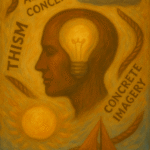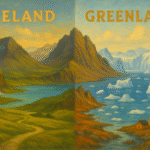The Ship of Theseus is a timeless philosophical paradox that questions whether an object that has had all of its components replaced remains fundamentally the same object. It asks us to consider: Are you still the same person if every part of your life changes? This exploration into identity challenges us to reflect on change, continuity, and personal growth.
What is the Ship of Theseus Paradox?
The Ship of Theseus is a philosophical thought experiment examining identity persistence amidst change. Imagine a ship that, over time, has each of its planks replaced. Once entirely replaced, is it still the same ship? This paradox highlights complex questions about identity, prompting reflection on our own identities as we evolve daily.
Why the Ship of Theseus Matters Today
In a digital age, identity philosophy is more relevant than ever. As our lives increasingly intertwine with technology, questions of self-identity and change gain prominence. Understanding this paradox helps navigate personal growth in a connected world, influencing how we perceive ourselves and relate to others. Philosophy professor Dr. Alice Brown states, “Digital transformation challenges our notions of a fixed identity.”
Practical Implications of Identity Philosophy
Understanding the Ship of Theseus can profoundly impact decision-making and relationships:
1. Decision-Making: Recognize how change affects choices, leading to self-awareness.
2. Relationships: Accepting identity evolution fosters healthier relationships.
3. Personal Growth: Encourages embracing change as a growth avenue.
Coping with Change: Navigating Life Transitions
Life transitions can be overwhelming, challenging our sense of self. The Ship of Theseus paradox offers a framework for resilience:
* See change as an opportunity for growth.
* Maintain core values amidst evolving circumstances.
* Embrace a fluid, adaptable identity, essential in today’s fast-paced world.
Self-Discovery and Personal Identity
Self-discovery is the journey of understanding one’s true nature beyond societal roles. It involves:
1. Reflection: Regular introspection to grasp core values.
2. Growth: Embracing change and uncertainty as growth catalysts.
3. Authenticity: Living in alignment with one’s core self.
Thought Experiments: Tools for Understanding Identity
Philosophical thought experiments like the Ship of Theseus challenge perceptions:
* Foster intellectual curiosity.
* Encourage rethinking identity concepts.
* Provide clarity on identity intricacies.
Integrating Identity in Modern Philosophy
Modern philosophy examines how digital culture reshapes identity perceptions. Are online personas extensions of ourselves? This interplay raises questions about continuity and personal identity in a virtual realm. Cultural analyst Dr. Erin Miller notes, “Digital identities blur lines between the self and the curated image.”
Existentialism and the Quest for Identity
Existentialism offers insights into identity amidst ambiguity, posing questions aligned with the Ship of Theseus. It helps explore life’s uncertainties and the essence of human existence. Jean-Paul Sartre famously remarked, “Existence precedes essence,” emphasizing the dynamic nature of identity.
Embracing Change: A Path to Understanding
Ultimately, embracing change reflects our complex identities, prompting growth and understanding. As we ponder identity philosophy through the Ship of Theseus, we uncover not only who we are but also who we aspire to be. Philosopher Simone de Beauvoir said, “One is not born, but rather becomes, a woman,” illustrating identity as a continual process of becoming.
FAQs About Identity and the Ship of Theseus
What is the lesson of the Ship of Theseus?
The Ship of Theseus highlights the fluidity of identity amidst change, teaching us to embrace transformation as part of our personal growth.
How can the Ship of Theseus help in relationships?
It fosters understanding that individuals evolve over time, encouraging acceptance and adaptability in relationships.
Is identity fixed or fluid?
Identity is fluid, constantly reshaping through experiences and changes, contrary to the notion of a fixed, unchanging self.
How does digital identity relate to the Ship of Theseus?
Digital identity raises questions about whether our online personas, which evolve and change, remain true reflections of our core selves.


